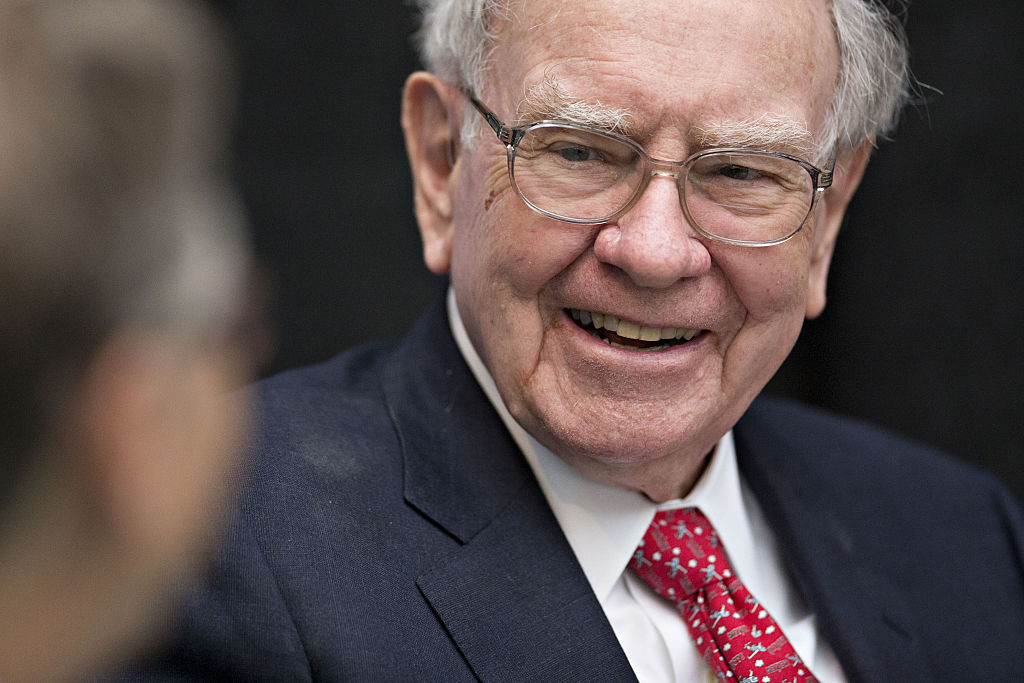8 ways to profit from Japan’s recovery
Corporate reform, normalising monetary policy and cheap valuations make Japanese equities a top long-term bet, says Alex Rankine.

Get the latest financial news, insights and expert analysis from our award-winning MoneyWeek team, to help you understand what really matters when it comes to your finances.
You are now subscribed
Your newsletter sign-up was successful
Want to add more newsletters?

Twice daily
MoneyWeek
Get the latest financial news, insights and expert analysis from our award-winning MoneyWeek team, to help you understand what really matters when it comes to your finances.

Four times a week
Look After My Bills
Sign up to our free money-saving newsletter, filled with the latest news and expert advice to help you find the best tips and deals for managing your bills. Start saving today!
Although still the world’s third-largest economy, Japan Inc. has languished over the past three decades. As Nicholas Gordon notes in Fortune magazine, in 1995 there were 149 Japanese firms in the magazine’s Global 500 list of top companies as measured by revenue. That was a close second to America’s 151. Today there are just 41 Japanese companies on the list, compared with 136 from the US and 135 from mainland China.
In the late 20th century, Japan was renowned for its innovative electronics, cars and video games, but the internet boom has largely passed it by. Norihiro Yamaguchi of Oxford Economics points to a stagnant economy and a “cautious investment culture” as the culprits.
Yet years of pain may have caused investors to overlook a bargain: the Topix index, a broader gauge of the market than the Nikkei, is “still a fifth cheaper than other developed markets on an earnings basis”. The true discount might be even bigger when you factor in “Japanese accounting’s harsher depreciation charges... particularly versus US companies, who are prone to overstating their profits”.
MoneyWeek
Subscribe to MoneyWeek today and get your first six magazine issues absolutely FREE

Sign up to Money Morning
Don't miss the latest investment and personal finances news, market analysis, plus money-saving tips with our free twice-daily newsletter
Don't miss the latest investment and personal finances news, market analysis, plus money-saving tips with our free twice-daily newsletter
This year has brought a renewed bout of enthusiasm for Japanese stocks. Warren Buffett visited the country in April. Berkshire Hathaway, his investment company, has made impressive returns of late from taking positions in local trading companies (known as “sogo shosha”), one way to gain broad market exposure.
For markets, Buffett’s visit was interpreted as a blessing imparted upon Japanese equities, bestowed by one of the investment greats. The Topix has soared by one quarter this year, making it one of the world’s best-performing markets, while the Nikkei has topped 33,000 points for the first time since 1990.
Reform story has room to run
A key plank of the Japanese bull case is that corporate reforms initiated by Shinzo Abe post-2012 have laid the groundwork for “a sustained improvement” in the profitability of Japanese firms, say Marcel Thieliant and Thomas Mathews of Capital Economics. But the record is mixed.
Valuations suggest that the corporate reform story still has room to run. This year the Tokyo Stock Exchange (TSE) has started pushing firms with a price-to-book (p/b) ratio of less than one, to up their game, say Masaki Taketsume and Taku Arai of Schroders. Management at firms with consistently low valuations will be required to present plans to remedy the problem.
A p/b of less than one means that the market is valuing the company at less than its assets are worth, which suggests that a company’s capital is not being well used. As of the end of May, slightly over half of TSE stocks traded at this deeply discounted level. There is thus plenty of low-hanging fruit for Japanese managers to pick to give share prices a lift.
On other metrics, Japan also looks cheap even after this year’s rally. As of 31 May 2023, Japanese stocks were on a cyclically adjusted price-to-earnings (Cape) ratio of 14, a 15% discount to the 15-year median and the same level as the historically cheap British stock market.
Nobody is betting on a repeat of Japan’s 1980s mania. Decades of stagnation have made permabulls all but extinct in the land of the rising sun. Yet its sun doesn’t need to rise right overhead to warm up your portfolio.
All investors in Japan need is for corporate reform to keep delivering steady improvements in shareholder value while it charts a path back to normal monetary policy. Japan offers reasonable valuations, a pro-market government and a degree of political stability that is the envy of most of the democratic world. Long out of favour and lost in translation, Tokyo’s capacious equity market contains plenty of hidden bargains.
Invest in Japan: What to buy
Japanese stocks make up 6% of the MSCI World index of developed markets. “All investors should have some exposure... [5%-10% of your portfolio] would be broadly sensible,” Rob Morgan of Charles Stanley tells Leonora Walters in the Investors’ Chronicle.
Of the large-cap tracker funds, the Fidelity Index Japan Fund has the lowest ongoing charge at 0.1%. Other trackers include the iShares MSCI Japan (LSE: IJPN) and the Vanguard FTSE Japan (LSE: VJPN), which have ongoing charges of 0.59% and 0.15% respectively. The latter two have returned 11% over the last five years and 70% over the last ten years in cumulative capital gains, providing a useful benchmark against which to test active managers. There is a robust case for active funds in Japan: the market contains hundreds of under-researched small companies, raising the odds that a savvy manager can net a few bargains.
The Baillie Gifford Japan Trust (LSE: BGFD), which focuses on medium and smaller-sized firms, has slipped by 3% this year. On a ten-year view, the 125% gain is creditable, however, especially when you consider the 1.21% dividend on top. The trust has a 0.66% ongoing charge and trades on a 6% discount to net asset value (NAV). It should offer broad exposure as Japan’s economy continues to revive.
Similarly, the JPMorgan Japanese Investment Trust (LSE: JFJ) also pays a dividend and has outperformed the Baillie Gifford Trust over the past five years. It has a competitive 0.7% ongoing charge and trades on an 8% discount to NAV. The Fidelity Japan Trust (LSE: FJV) doesn’t pay a dividend and has gained 148% over the last decade. There is a 0.94% ongoing charge and the 12% discount to NAV means that investors are getting a sizeable extra discount on top of Japanese assets that are already cheap.
The Schroder Japan Trust (LSE: SJG) has gained 12% so far this year. It also pays a 2.1% dividend yield. But the trust went nowhere in the five years before 2023. Wary investors have thus slapped a 10% discount to NAV onto the trust. It has a 0.92% ongoing charge.
Finally, the AVI Japan Opportunity Trust (LSE: AJOT) takes an activist approach to unlocking value in corporate Japan. It buys into overcapitalised small and mid-cap firms that look undervalued and then engages with management to encourage it to take steps to unlock shareholder value. The ongoing charge of 1.61% is high, but is arguably justified by the extra work required. The trust only launched in October 2018, but early signs are encouraging, with a 15.8% gain since launch. The concept seems to have captured the imagination of investors, so it trades on only a slight discount to NAV and yields 1.32%. It is one to watch.
Get the latest financial news, insights and expert analysis from our award-winning MoneyWeek team, to help you understand what really matters when it comes to your finances.
Alex is an investment writer who has been contributing to MoneyWeek since 2015. He has been the magazine’s markets editor since 2019.
Alex has a passion for demystifying the often arcane world of finance for a general readership. While financial media tends to focus compulsively on the latest trend, the best opportunities can lie forgotten elsewhere.
He is especially interested in European equities – where his fluent French helps him to cover the continent’s largest bourse – and emerging markets, where his experience living in Beijing, and conversational Chinese, prove useful.
Hailing from Leeds, he studied Philosophy, Politics and Economics at the University of Oxford. He also holds a Master of Public Health from the University of Manchester.
-
 Early signs of the AI apocalypse?
Early signs of the AI apocalypse?Uncertainty is rife as investors question what the impact of AI will be.
-
 Reach for the stars to boost Britain's space industry
Reach for the stars to boost Britain's space industryopinion We can’t afford to neglect Britain's space industry. Unfortunately, the government is taking completely the wrong approach, says Matthew Lynn
-
 The Stella Show is still on the road – can Stella Li keep it that way?
The Stella Show is still on the road – can Stella Li keep it that way?Stella Li is the globe-trotting ambassador for Chinese electric-car company BYD, which has grown into a world leader. Can she keep the motor running?
-
 Investing in the energy sector – is the reward worth the risks?
Investing in the energy sector – is the reward worth the risks?The energy sector used to offer predictable returns, but now you need to tread carefully. Is the risk worth it?
-
 How to beat Warren Buffett – and the fund and trusts that have managed it
How to beat Warren Buffett – and the fund and trusts that have managed itWarren Buffett has achieved stellar returns for investors over a long and illustrious career. Can you rival his investment performance?
-
 Fractional shares: what are they and why HMRC is worried?
Fractional shares: what are they and why HMRC is worried?Investors who have flocked to investment apps offering fractional shares in an Isa could lose the tax-free status of their portfolios.
-
 What is Bernard Arnault's net worth?
What is Bernard Arnault's net worth?We look into Bernard Arnault's net worth – how did he make his billions?
-
 Power your portfolio with the profits of China’s electric-vehicle makers
Power your portfolio with the profits of China’s electric-vehicle makersOpinion A professional investor tells us where he’d put his money. This week: Ewan Markson-Brown of the CRUX Asia ex-Japan Fund highlights three favourites.
-
 Top investment ideas for 2023: silver, tech and drugs
Top investment ideas for 2023: silver, tech and drugsAdvice Our writers’ top investment ideas for 2023 include a cybersecurity stock, bitcoin and a psychedelic treatment for depression.
-
 Buy stocks with wide moats to protect your profits
Buy stocks with wide moats to protect your profitsTips Companies with wide "moats" – attributes that give them an enduring competitive advantage – tend to thrive over the long term. Dr Mike Tubbs explains how to identify them and how to invest in them.